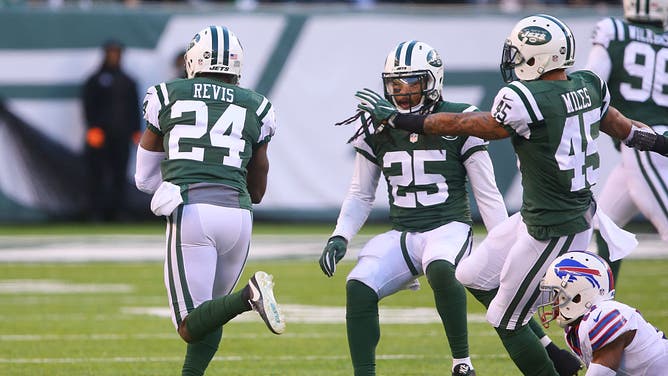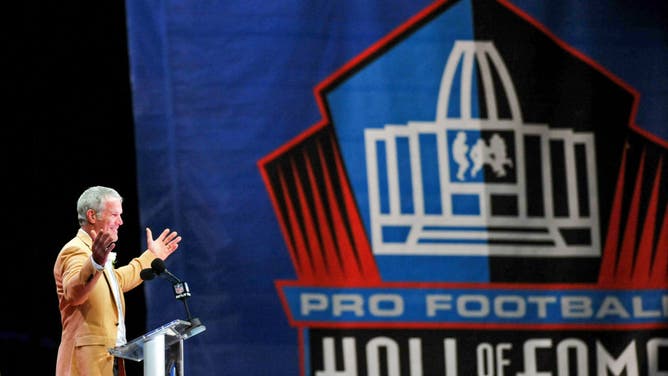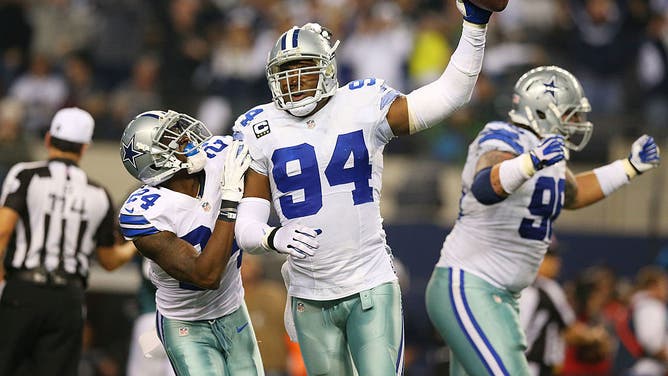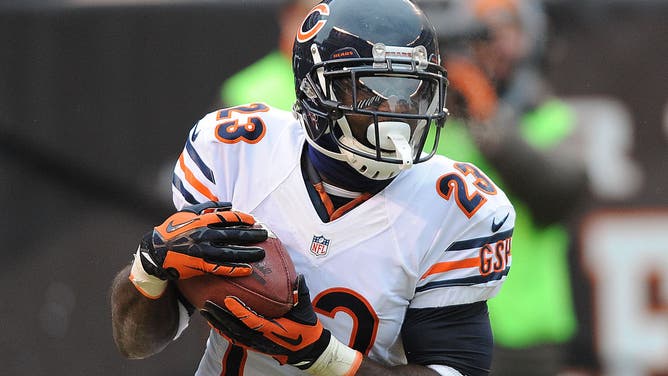Pro Football Hall Of Fame Survey With 300-Plus Qualified Responses Sizes Up The Upcoming Vote: Jason Cole
The constant question I get every year about the Pro Football Hall of Fame is not so much a question as it is an incredulous rhetorical statement.
“How can so-and-so not be in already?”
It’s usually followed by some statement about my lack of intelligence (I can confirm that), the overall lack of intelligence among the group of 49 selectors (yes, I weigh them down), or even some assertion that I hate so-and-so’s team that he played for (which just makes me chuckle).
There have even been a few accusations about bias in the process or about how the process is terrible and should be changed. Trust me, I readily admit that this process is human and, therefore, inherently flawed. What I always ask in return is, “You got a better idea?”
Then I hand people the list of 15 former players who are on the ballot and ask, “Ok, tell me your five?”
That’s when most people realize how hard the process is?
For the 11 years I have had the honor of serving as a selector for the Hall of Fame, I have done my best to question who I think belongs. There are my own opinions about the top players and I do my best to incorporate the opinions of as many qualified people who know the game. It has grown to the point that I annually text or email more than 500 coaches, executives, scouts and former players.
I consider it something of a duty to make sure I’m as educated as possible about the men who made football their passion. While I consider this an honor and a responsibility, I know well enough from years of experience that my opinion alone does not make me a good enough arbiter.
This year, so far, 374 qualified people have responded when I asked them to name their top five candidates. It should be noted that a significant number of them don’t vote for five. They believe the standard for getting into the Hall should be higher, not easier.

Darrelle Revis. (Getty Images)
I don’t think they’re necessarily wrong, but that’s not really the point. Thus, here are the results for you to consider:
Before you take this as empirical evidence of how I will vote or how I think the group will vote, just take it easy. Last year, for instance, the person who finished last on this survey – safety LeRoy Butler – made it into the Hall. Every person on this list has serious qualifications.
The purpose of this exercise is to test my own thoughts as much as anything. It’s also to prompt questions about assumptions. For instance, most people respond to this list and say that Revis and Joe Thomas are locks to make it. That’s hardly the case.

Former NFL quarterback Brett Favre. (Getty Images)
In fact, their numbers are among the lowest ever for a potential first-ballot Hall of Famer. When Junior Seau went in, he had 71 percent support. Calvin Johnson was 75 percent. Charles Woodson, LaDainian Tomlinson, Peyton Manning and Brett Favre were all over 90 percent. Favre received unanimous and Manning was at 99 percent because three people wanted to support some players who were less obvious.
Thus, I’m thinking about Revis and Joe Thomas more carefully. Will I vote for them? Probably. I think Revis was the best cover corner in the league for a five-year stretch before he got hurt and was still great afterward. His cover skills during the apex of his career rate with the best to ever play the position, including Deion Sanders.
I have more hesitation with Joe Thomas. Yes, he was the gold standard of his era. But I also sat in our selection meetings over the past six years as we debated the merits of offensive linemen Kevin Mawae, Steve Hutchinson, Alan Faneca and Tony Boselli. When you compare Thomas to them and the likes of fellow Hall of Fame left tackles Anthony Munoz, Jonathan Ogden, Orlando Pace, Willie Roaf, and Walter Jones, he doesn’t seem to measure up.
Frankly, I thought all of them were better players than Thomas and yet he could walk into the Hall on his first try? Maybe that’s overthinking it, but it’s odd to me.
Or as one offensive lineman who played more than a decade in the league as a contemporary of Thomas wrote in a text, “(I) never got the comparison to the all-time greats.”

DeMarcus Ware. (Getty Images)
Likewise, this survey makes me sort through certain positions. We have three great pass rushers on the list in Freeney, Ware and Allen. Going into the survey, I wouldn’t have guessed that Freeney would have gotten the most support, let alone how much more he got than the other two.
When he did, that caused me to ask why. To many of the people I surveyed, including a large number of offensive linemen, Freeney had a unique collection of skills that made him impossible to handle one on one. Freeney’s combination of speed and power combined with his inside spin move made him extraordinary.
“He was short, but he had the power of a 300-pound man because his lower body was so strong,” one lineman said. “I don’t know how you block him one-on-one.”
Or, as another lineman said, “We never blocked him with just one guy.”
Likewise, the support Zach Thomas received over Patrick Willis makes me feel strongly that Thomas’ longer career and list of achievements give him the edge over Willis’ spectacular short-term success. The wide receiver position is a nightmare to figure out because Torry Holt has been waiting, Reggie Wayne has all the numbers, and Andre Johnson is a prototype.

Kick returner Devin Hester. (Getty Images)
Then, of course, there is the debate about Devin Hester, who is the most dynamic and accomplished return man in the history of the game. If ever there was a return man to qualify, Hester is it and he has finished in the top five of this survey in each of the two years he has been on the ballot.
The problem for me is that Hester is also a guy who could never learn to play another position. The Bears tried to make him a wide receiver. He couldn’t do it. Yet other great return men, like the aforementioned Sanders and wide receiver Steve Smith who spent his career with Carolina and Baltimore, moved off of being return men because of their ability to play other spots that were more important.
If Sanders and Smith had stayed as return men, would they have been better than Hester? That’s impossible to really know. What we can say is that Hester wasn’t good enough to do what they did by playing other spots and contributing more to their teams.
Welcome to the debate.